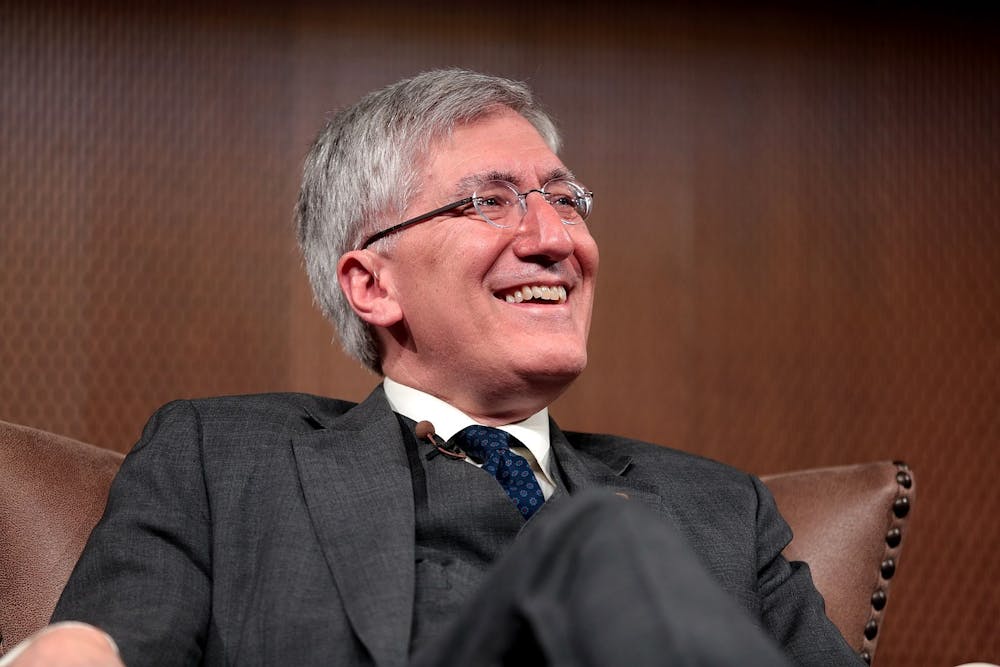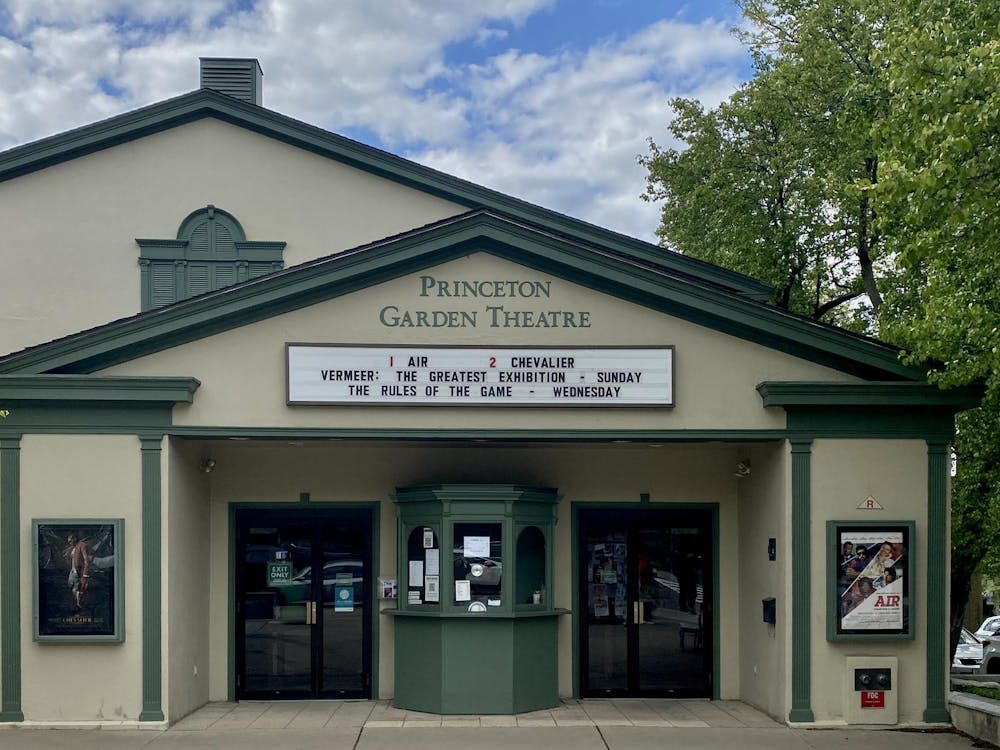A week after The New York Times first reported that the University of Florida (UF) had barred faculty members from testifying in a case against the state government, the school announced a reversal. UF said on Friday that it will permit professors to assist in a lawsuit that aims to overturn a new Florida law that restricts voting rights.
Prior to UF’s reversal, several prominent Princeton professors — including politics professors Robert George and Keith Whittington, history professor Kevin Kruse, and African American Studies professor Imani Perry — spoke out in support of the UF professors’ freedom of speech.
UF officials faced backlash for telling at least eight professors that as university employees, they are prohibited from assisting in lawsuits “adverse to U.F.’s interests.”
The lawsuit in question challenges a new law passed under Florida Gov. Ron DeSantis that voting rights advocates say discriminates against minorities.
The law, Senate Bill 90, imposes a variety of restrictions on voting, such as limiting use of dropboxes for depositing absentee ballots and increasing identification requirements for absentee ballot requests, according to the Times.
On the same day that UF signaled a reversal of the ban, three involved professors filed a suit in federal court against the university for “stifling of faculty speech against the state.”
DeSantis himself has resisted questioning on the controversy, though his political rival, Democratic gubernatorial candidate and U.S. Representative Charlie Crist (D-Fla.), used it to criticize the governor and possible contender for the 2024 Republican presidential nomination.
“The governor is looking for blind loyalties from institutions around the state, whether it’s school board members, small businesses,” Crist said in reference to the situation unfolding at UF, according to the Miami Herald.

On Wednesday, Nov. 3, George spoke on a panel to Florida’s highest ranking public university officials at an annual summit held at Florida Atlantic University. He urged the officials to permit UF professors to provide expert testimony or otherwise assist in any litigation, regardless of whether the litigation’s aims contradict the Florida government’s political agenda.
After the summit, George tweeted that in presenting before the Florida Board of Governors, he took the opportunity to “state my views plainly.”
“I urge universities here in Florida and the University of Florida to get this controversy behind it as quickly as possible,” George said at the panel, per the Herald, “by simply interpreting the conflicts [of interest] in a way that do not distinguish paid or unpaid, and would give broad permission to testify as to what you are in fact an expert on.”
Following backlash to the initial reporting of the ban, UF President Kent Fuchs announced a modification of the policy on Nov. 2, which would allow professors to testify in cases against the state if they do so in a “pro bono” capacity and “on their own time without using university resources.”

George tweeted in reply to Fuchs’ announcement of the modification, indicating he viewed it as a step in the right direction, but ultimately insufficient — as he would state in the panel.
The announcement, he wrote, showed that UF is “taking seriously free speech and academic freedom concerns raised by many (including me) about restrictions on expert testimony by professors in litigation against the state.”
George, a conservative legal scholar and the Director of the James Madison Program in American Ideals and Institutions at Princeton, has become known as a leading proponent of freedom of speech in the country — both inside and outside of academia.
On campus, George teaches classes on constitutional interpretation and civil liberties, and has previously been involved in a number of controversies relating to free speech — most recently when he came under fire from students for his views on gender and gendered pronoun usage.
George did not respond to requests for an interview for this story.
In March, alongside several Princeton colleagues, he joined the Academic Freedom Alliance (AFA), a cross-university group “dedicated to upholding the principle of free speech in academia.” The Alliance recently announced that its membership had surpassed 400 people, and has issued public statements on prominent free speech controversies, including MIT’s disinvitation of University of Chicago geoscience professor Dorian Abbot and now the UF ban on professor testimony.
Whittington, who serves as the AFA’s Academic Committee Chair, wrote in an Oct. 31 letter to Fuchs and other UF leaders that he strongly opposed UF’s initial ban.
“The university is mistaken in thinking that this decision is consistent with the principles of free speech and academic freedom,” Whittington wrote. “It has long been a central feature of academic freedom in the United States that when university professors ‘speak or write as citizens, they should be free from institutional censorship or discipline.’”
Whittington, the author of “Speak Freely: Why Universities Must Defend Free Speech,” a book that was chosen as the Class of 2022’s mandatory pre-read, also pointed to UF’s own declared commitments to academic freedom in defending his argument.
“The university’s own policies guarantee the academic freedom of the faculty,” Whittington said in the letter. “The university has recognized that academic freedom is ‘essential to the integrity of the University.’”
On Nov. 2, following Fuchs’ initial modification of the policy, Whittington wrote to him again, calling the revised position a “half-measure” that “does not yet satisfy the University’s obligations under the First Amendment.”
In a statement to The Daily Princetonian on Thursday, Whittington said that UF “needs a better set of policies on academic freedom and a restructuring of its policies [and] procedures relating to outside activity of faculty.”
At the Wednesday panel featuring George, attorney and UF Board of Trustees member Rahul Patel argued that the continued ban on professors engaging in paid expert testimony for cases against the state comes from a concern for “conflict of interest.”
“Under the conflicts policy, we were not able to put our stamp of approval on professors coming to us taking a paid role in litigation, taking a position that is adverse to the University of Florida, the University of Florida being a part of the state,” Patel said, according to the Herald’s reporting. “It would be like, if you had a business and an employee coming to you saying, ‘I would like to get paid separately to testify in a lawsuit against the interests of the parent company that I work for.’”
But in Fuchs’ reversal announcement just two days after the summit, he clarified that professors can receive compensation for their testimony in cases against the state, but did not specify a rationale for the reversal.
In addition to George and Whittington, other Princeton faculty members had spoken out against UF’s policy.
Kruse tweeted a reply to the University of Florida Twitter account, expressing opposition to their professed views on voting rights.
Chair of the African American Studies Department Eddie S. Glaude GS ’97 retweeted the original Times coverage of the controversy. Perry, a professor in the Department of African American Studies, argued that anti-leftist political rhetoric has contributed to a world in which UF’s policy is tolerated.
“The ‘all professors are leftists’ mantra facilitates the anti-intellectualism/facts don’t matter/stand aside while we dismantle all vestiges of democracy of the right wing,” Perry wrote. “Also it’s very much not true.”
Marie-Rose Sheinerman is a senior writer who has reported on COVID-19 policy, faculty controversy, sexual harassment allegations, major donors, campus protests, and more. She can be reached at ms78@princeton.edu or on Twitter at @rosesheinerman. She previously served as an editor of news and features and now assists with content strategy.








